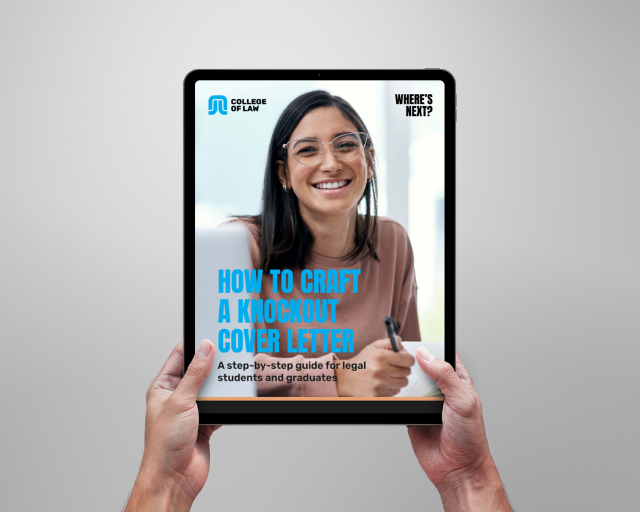Your law degree unlocks a sweeping range of career options.
Yet deciding what to do may be difficult. Not because of a lack of choice – but because you have too many. And that’s even before you consider the opportunities outside of traditional law.
So how do you know what path to pursue when you don’t have a clue? Here are 7 strategies to help you find a career that’s right for you.
1. Talk with people
Those closest to you know you best. Your passions. Your frustrations. Your strengths.
So talk with your family and friends. Ask them what they think you’re good at and what careers they would suggest for you.
But don’t stop there. Go beyond your immediate network.
Write a list of the fields you’re interested in. Then speak to lawyers in those areas to find out more. Reach out on LinkedIn or offer to take them out for a coffee. Ask questions like:
- How did they get to where they are?
- What do they love about their job? What don’t they like?
- What skills do they use regularly?
- What advice would they give someone who was considering this career?
2. Do extra volunteer and study experiences
Every experience you can add to your resume is valuable.
Volunteering is a fantastic way to try before you apply and put your legal skills to the test. It allows you to reflect on the realities of being a lawyer – and whether those areas are something you’d like to explore further.
Likewise, doing further study beyond your uni subjects allows you to explore a variety of different domains.
The College of Law offers a range of study options if you’d like to enhance your legal education. You can also do short courses which allow you to dip your toe in and decide if you want to learn more.
3. Review your transcript
Another way to determine which area of law you may want to practise in is to reflect on your studies at university. And don’t just consider your law subjects – examine your electives too.
As you do, take note of which subjects you enjoyed or got good grades in.
Then ask yourself:
- What skills did you use in those subjects?
- Why did you enjoy or excel in these subjects? Was it the topic or the processes?
- Would you like to specialise in this area? Why?
4. List your interests
What topics and themes are you naturally drawn to?
Look at your bookshelf. Browse your podcasts. Make a list of all the non-fiction areas you’re interested in.
And take a moment to reflect on your hobbies. What do you like doing in your spare time? What careers could incorporate both your interests and your legal expertise?
If you can connect your passions with your profession, you’ll find fulfilment and a career you’ll love.
5. Browse job sites
Browse a jobs board like SEEK.com.au to see what opportunities are out there.
Starting with legal roles, browse through the jobs from all over the country. Don’t worry about location – focus more on the types of roles.
Look at the job titles and position descriptions. Do the tasks in that role appeal to you? If not, keep looking.
Don’t limit yourself to entry-level roles either. Go all the way to the top to see what senior roles you could be doing in a decade or two. You can work out how to get there later.
6. Reflect on your times of flow
Another technique to help identify your ideal career is to keep a flow journal.
Flow is when you are ‘in the zone’. It’s when time just seems to disappear, you lose yourself in your activities and suddenly the day is gone.
So keep a daily task diary and note down when you experience these states of flow. Another way to find your flow activities is to ask yourself:
- When have I been compelled to learn?
- What topics have I researched in my own time?
- When have I worked on a project that I felt swept away on?
7. Doing is the best way to decide
Some of these strategies may lead you to an instant ‘aha’ moment. Yet if you’re still unsure, you may need to do some more practical exploring.
Ultimately, doing is the best way to learn what you want for your career – and, perhaps crucially, what you don’t want.
Remember, unlike previous generations, today’s legal career paths aren’t a simple linear progression. So it’s okay to take a detour every now and then to try something new – it could be the best ‘wrong turn’ you ever make.









































































